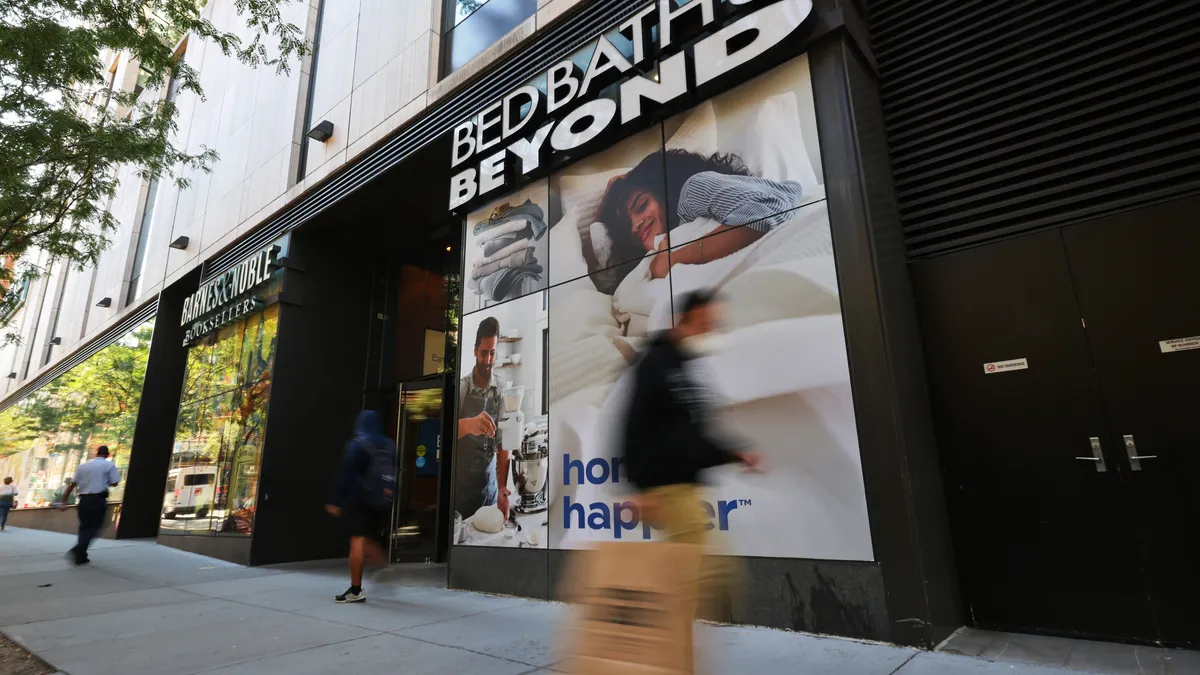Dive Brief:
-
Neiman Marcus Group last week announced that interim chief financial officer and chief operating officer Michael Fung will leave, effective June 30. The announcement came after the company and Fung agreed not to renew Fung's consulting contract with the luxury department retailer. In a filing with the Securities and Exchange Commission, Neiman Marcus described Fung's departure as "planned" and not "the result of any disagreement regarding any matter related" to the company or its operations.
-
Following Fung's departure, Neiman Marcus veteran Dale Stapleton will serve as interim CFO until a permanent executive is found, the company said. Stapleton has been with Neiman Marcus Group for more than 16 years, serving as senior vice president and chief accounting officer since 2010, according to a company press release and an SEC filing.
-
The struggling department store in November tapped Fung to the temporarily serve in the position previously held by Donald Grimes, who himself had been in the role for just 17 months. Fung arrived as a consultant after serving as interim chief financial officer and treasurer for 99 Cents Only Stores. Prior to that, he spent 11 years at Wal-Mart Stores Inc., until his 2012 retirement. There he was CFO at Wal-Mart U.S and SVP, of the retail giant’s Global Procurement and Internal Audit.
Dive Insight:
Neiman Marcus has scrambled to catch up with changing shopping priorities and beat back against headwinds hitting department stores, which are having particular difficulty maintaining consumers’ interest. As it contends with massive debt, the upscale retailer in the new year ditched its longstanding plans for a return to Wall Street trading.
The company's next permanent CFO will face the company’s $4.9 billion debt burden (and counting). That debt load has interfered with its efforts to restructure and possibly sell itself, and it prompted GlobalData Retail Managing Director Neil Saunders late last year to warn that debt levels were “completely unsustainable."
“Indeed, even if all interest was frozen and the entirety of operating profit was to be directed to the purpose of paying down the debt, it would take well over 40 years to remove it from the balance sheet,” Saunders said in a note emailed to Retail Dive. “Such a position underlines the fragile nature of the company’s finances, something that hits home when the $72 million quarterly interest payments are appreciated. This acts as a major barrier to the company being sold and makes an IPO far less attractive. It also guarantees that without a significant rise in sales, the company will remain loss-making.”
Canadian department store company Hudson's Bay Company, with about $2.4 billion in debt of its own, is reportedly in talks to take over Neiman Marcus but is hoping to avoid taking on that full debt load. Developer Related Cos. was also reportedly interested in a takeover in order to boost the department store’s role as an anchor tenant of its New York City Hudson Yards project, though Related chairman and Miami Dolphins owner Stephen Ross has since denied those reports.
In any case, reducing the debt intake will require negotiations with Neiman Marcus’s creditors, a job that awaits the next CFO. Fortunately, the retailer's troubles only go back about two years — a sign that it's not too late for the business to be turned around, Philip Emma, analyst at Debtwire, told Retail Dive.
“The Neiman Marcus name still has value. It has deteriorated, but it’s still substantial,” Emma said. “There’s a revenue stream to buy at a discount — that’s an intriguing possibility. In a low growth environment for retail, the ability to add sales cheaply could be viewed as compelling.”














